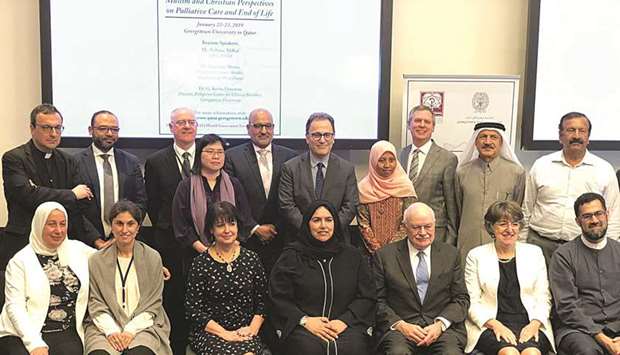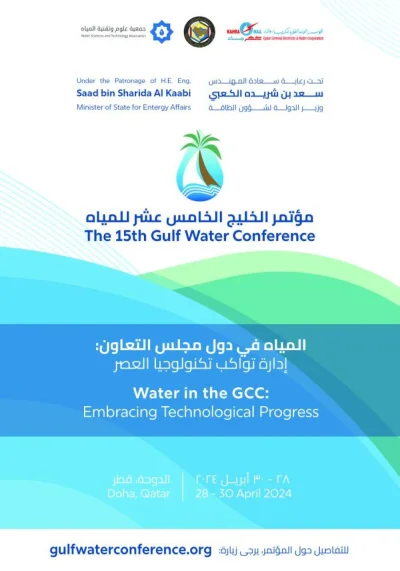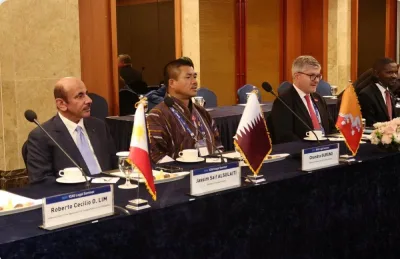At the ‘Muslim and Christian Perspectives in Palliative Care and End of Life’ conference at Georgetown University in Qatar (GU-Q), world renowned experts in bioethics and healthcare stressed the importance of developing this branch of medical specialisation through training for key stakeholders, investment in research, and sharing best practices across cultures and faiths through future joint initiatives.
The conference was co-organised by GU-Q and the Vatican’s Pontifical Academy for Life, with the support of WISH, the World Innovation Summit for Health.
The conference served to further the human development aims of Qatar through the signing of a joint declaration on end of life and palliative care promoting an integral approach to the human person, signed by Sultana Afdhal, the CEO of The World Innovation Summit for Health (WISH), and Archbishop Vincenzo Paglia, the president of the Vatican’s Pontifical Academy for Life.
“Georgetown has a long tradition of commitment to spiritual inquiry, debate and dialogue. In this spirit, I am very pleased that GU-Q had an opportunity to play a defining role in the organisation of this important conference, and in facilitating the signing of the joint statement on palliative care that will have implications not only for Qatar and the region, but everywhere human compassion in healthcare and end of life is needed,” said the dean of GU-Q, Dr Ahmad Dallal.
Afdhal said, “This declaration, I am sure, will provide the basis for continued initiatives between our organisations and I look forward to working with all of you as we continue upon this hugely significant journey.” On behalf of Archbishop Paglia, president of the Pontifical Academy for Life, Andrea Ciucci thanked the event organisers and participants, and noted the significance of the partnership between Qatar and the Vatican, saying, “In a world where religions are used to emphasise conflicts and differences, we spent the two days of this conference working together, in the same room, at the same table, and on the same stage, discussing how to take care of people facing illness and death. This was an excellent achievement.” Dr Khalid al-Ali, director, Higher Education Institutions Affairs in the Ministry of Education and Higher Education in Qatar, expressed the need to fill knowledge gaps through continued scientific research with a local and regional focus, while noting that this field is an extension of the enduring Qatari cultural value of respect and care for the ill and elderly through strong family support systems.

A group of officials at the conference.


